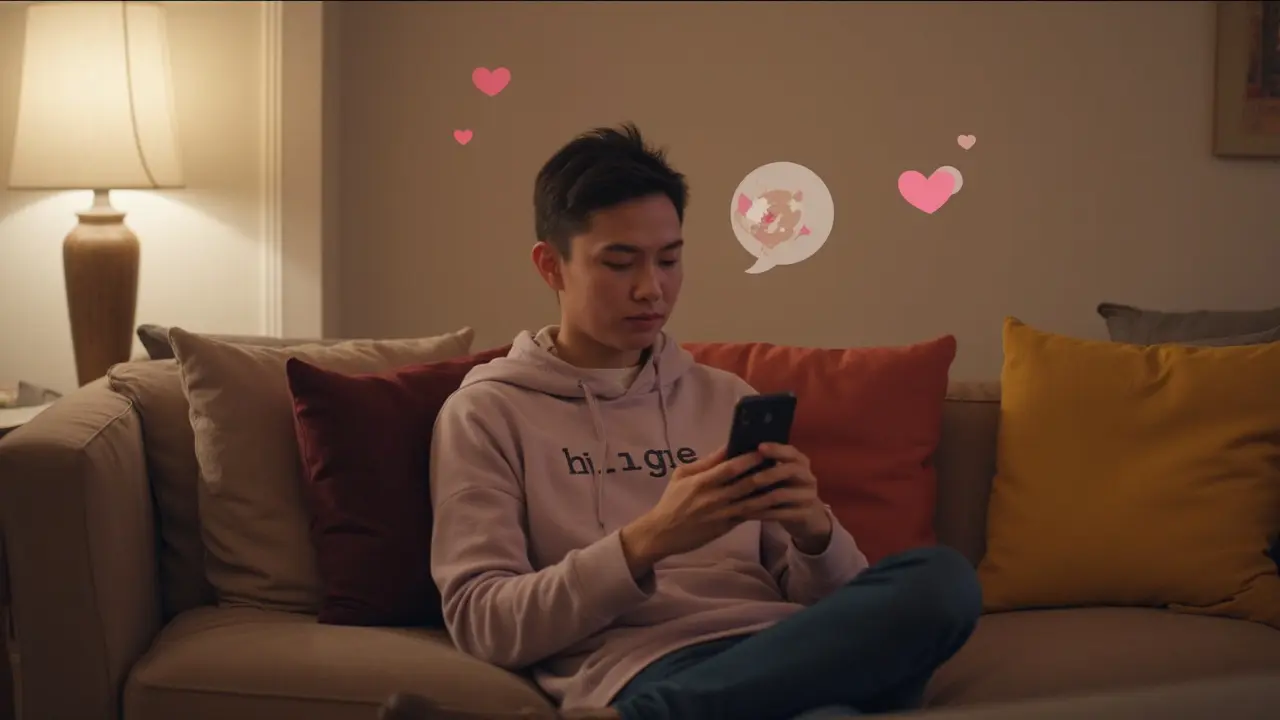Direct Answer – Is Hinge Legit?
Short answer—yes, Hinge is legit. If you want a dating app focused on real connections, it’s not a scam. You’ve probably seen people swiping away on Tinder or Bumble, hoping for something meaningful. Hinge flips the script. It’s built to help people actually meet up, not just collect matches or have fleeting chats. Sure, like all social platforms, you might bump into a few bots or fake accounts, but the overall vibe puts a real emphasis on quality interactions. Hinge puts an effort into verifying users, mediating content, and keeping things honest. You’re not going to get rich relatives in prison asking for bail money—Hinge doesn’t attract catfish at the scale you might worry about. The app had more than 20 million downloads by early 2024, and its famous prompt is, "designed to be deleted". It’s not without flaws, but if you’re wondering, “Is Hinge safe?” or “Does Hinge work for real relationships?”—the truth is, it’s about as solid as dating apps get right now.
Key Points
- Hinge is designed for genuine, long-term connections, not just casual flings.
- The app has effective safety features, including profile verification and reporting.
- Some fake accounts slip through, but scams are rare compared to other dating apps.
- Premium features can help, but the free version is fully usable.
- Real stories and positive reviews suggest Hinge often leads to actual dates — not just ghosting and endless chatting.
Comprehensive Guide to Hinge: Facts, Features, and Real Stories
Ever sit with your phone, staring at a dating app, thinking, “Am I about to wander into a weird corner of the internet?” You’re not alone. Hinge has surged in popularity over the last couple of years, climbing high among singles looking for more than just a series of unanswered messages. It’s not the longest-running dating app out there—that honor goes to sites like Match.com and OkCupid—but since its major rebranding in 2018, Hinge has made a name for itself as the go-to app for people who are tired of endless swiping on Tinder or Bumble.
So, what makes Hinge feel different? Two words: Intentional design. Hinge pushes you to fill out a detailed profile, using prompts that are actually fun to answer (and stalk). Instead of just uploading pics and calling it a day, you’ve got to share little pieces of your personality with prompts like “Truth or dare?” or “Let’s make sure our first date is...” The idea is to get users talking about honest stuff—not just flashing their vacation highlights. It creates a space where people interact through comments and likes on specific profile sections, making matches less superficial.
Let’s talk size and reach. As of August 2025, Hinge boasts over 23 million global downloads. It thrives in big cities like New York, Los Angeles, London, and Sydney. That’s not random. Hinge attracts young professionals (25-40 is its sweet spot), but you’ll find a range of ages. It’s especially loved among people looking for something beyond hookups. According to a Pew Research study from 2024, Hinge’s users reported the highest rates of conversations leading to real-life dates out of the big dating app options. Sure, the numbers vary by region, but the app’s “designed to be deleted” mantra actually rings true for a lot of users. If you want stories, scroll through Reddit or TikTok—there are hundreds of couple testimonials giving Hinge credit for kicking off lasting romances.
Is it perfect? Nah. Like any big dating app, there are occasional fake profiles and scammers. Nobody’s cracked the code on keeping every single bad apple out. But here’s the thing: Hinge has actual humans moderating reported accounts, and it’s quicker at removing duplicates or bots than most free platforms. The company rolled out selfie verification in 2023. Now, you can spot which profiles are verified—it’s a little blue tick, not unlike Instagram’s, giving you some peace of mind you’re at least chatting with a real person.
Speaking of safety, Hinge is GDPR-compliant in Europe and follows strict privacy laws in the US and other regions. You control what info you share, and you can block or report any account instantly. You won’t get bombarded by random, inappropriate messages either, since only people you’ve liked can send you a message, and conversation must start with a comment about your photos or answers—less spam, more substance.
And if you think the app is all talk, Hinge actually published stats in early 2025: over 70 percent of first dates arranged on Hinge led to a second date, one of the highest success rates among major apps. Does this mean every match is The One? Of course not. But it’s a real shot if you’re actually willing to put yourself out there.

Definition and Context: How Hinge Works Compared to Other Dating Apps
Let’s break down the basics: Hinge is a dating app built for connections—like actual, face-to-face dates that leave your thumbs less sore and your calendar a little busier. Unlike Tinder where swiping is never-ending, Hinge limits the options each day. Why? Studies from Stanford in 2022 showed that choice overload makes people less happy about dating apps. Hinge leans into this, offering you a handful of “standout” profiles every day based on your preferences.
Profile creation takes a bit longer, but that’s good news. Hinge nudges you to answer three to six conversation prompts—to show off humor, values, quirks—so your matches get more than a set of carefully filtered photos. Research published by the Oxford Internet Institute found that profiles with unique prompts were “80% more likely to get genuine comments and replies.” That’s a solid case for putting an extra five minutes into those answers.
Here’s how Hinge matches you up: The algorithm factors in your likes, what you comment on, your location, age range, and even the kinds of profiles you linger on. If you’re worried about privacy, know that your phone number and email are needed for sign-up, but not shared with other users. There’s also an option to link your Instagram—totally optional—but it helps curb fake profiles. Verification is done after you submit a selfie (and yes, someone at Hinge checks it), adding a layer of safety missing on older dating apps.
Why should you care about Hinge’s unique systems though? Because Hinge’s philosophy goes deeper. It tracks actual user data for matches that converted to dates—or even relationships. If you’ve ever been frustrated by Tinder’s army of ghosters, Hinge’s limited daily “Likes” and prompt comments shift the focus from collecting matches to actually talking. And let’s face it—conversations where people pick out a detail from your favorite “Two truths and a lie” answer are just more fun to reply to than, “Hey.”
If you want more matches or expanded preferences, Hinge does offer a paid version, called Hinge Preferred. It lets you set filters like education, politics, and even whether someone wants kids. Not a lot of people realize this, but Hinge’s parent company, Match Group, also owns Tinder and OkCupid—so the technology is rock-solid and the user base is legit. Hinge’s customer service is more responsive than those apps, too. You can usually get an actual answer in 48 hours if you email support about a real problem.
Bottom line: in a sea of quick-swipe apps packed with spam accounts and serial ghosters, Hinge’s setup isn’t just safer—it’s actually geared toward real, meaningful conversations. If you’re someone who wants to dodge awkward small talk and get straight to finding people you’d actually want to sit across the table from, that’s Hinge’s whole vibe.
Benefits and Types of Hinge Experiences: Who’s Using Hinge and What You Can Expect
Here’s where Hinge stands out. If you’re looking for something beyond boring DM banter, Hinge has your back. Recent user polls by AppAnnie showed that over 60 percent of Hinge users are after serious relationships—it’s just not a playground for folks who want one-night stands. Of course, nobody’s swiping in a tuxedo with a bouquet, but the crowd skews toward “looking for something real.” Want casual? It happens, but it’s not the norm. Expect thoughtful conversations and profiles that actually tell you about the person, not just their dog or breakfast croissant.
The app is super inclusive. Since 2019, Hinge lets you pick from dozens of gender identities and religious and political stances—so it’s not just cookie-cutter dating. Whether you’re LGBTQ+, straight, or something in-between, you’ll find plenty of users. Hinge is up front about data: it’s around 53 percent women and 47 percent men. One of the few dating apps where women say they feel safer messaging, too. The platform actively bans offensive language, and its “We Met” follow-up lets you give anonymous feedback after in-person dates. That way, unsafe or disrespectful users are tracked and (if needed) kicked off.
Types of experiences break down like this:
- Standard Free Users: Get 10 daily likes and full access to profiles, prompts, and messaging.
- Hinge Preferred (Paid): Unlimited likes, extra filters (height, education, politics), and see everyone who’s liked your profile at once.
- Verified Profiles: Blue tick users have completed the selfie verification process, so you can avoid most fakes up front.
- LGBTQ+ and Identity-Inclusive Users: Full gender and orientation spectrum, with corresponding Community Safety FAQs.
For people aiming to cut through the noise, Hinge’s algorithm is seriously smart. The "Most Compatible" feature uses your preferences and behavior to suggest matches who check your most important boxes. The feedback they collect after dates actually shapes future profiles they show you. Wild, right?
Another big perk: real-life events and date ideas. Hinge started rolling out “Date Ready” badges in 2024, so if you’re open to meeting up soon, others see it. Plus, the app now gives suggestions for spots nearby when both users are ready—it’s integrated with Google Maps to recommend cafes or parks, making that first move even easier.
Here’s a sense of the social breakdown by city from Hinge’s 2024 transparency report:
| City | % Serious Seekers | % LGBTQ+ | % Age 25-34 |
|---|---|---|---|
| New York | 70 | 15 | 53 |
| Los Angeles | 67 | 17 | 51 |
| London | 74 | 19 | 55 |
So whether you’re someone bored of aimless swiping, worried about bots, or hoping to find a partner who’ll actually keep a promise, is Hinge legit? All signs point to yes—as long as you play it smart and honest yourself.
Cost, Safety, and Smart Strategies for Using Hinge
No one likes sticker shock or sneaky fees, so let’s break down the real costs. Hinge’s standard version is free and perfectly usable—you get 10 likes a day, can match with anyone, and can message without paying a dime. Premium, called Hinge Preferred, costs around $29.99 per month (as of August 2025), but bundles in unlimited likes, more search options, the “See who liked you” view, and “Expert Recommendations” that pop up in notifications. Hinge sometimes offers short free trials of Preferred after sign-up, so don’t buy right away—wait to see what deals pop up.
Booking (if you’re meeting up IRL) is all on you, but the app’s built-in suggestions and “Date Ready” feature can help. Want concrete advice on dates? Hinge’s newsletter now dishes out local hotspots depending on your city, especially in major US and UK locations. A quick hack: always suggest meeting in a public, busy area—coffee shop, bar, or park—for early dates. Don’t give out your address or last name at first, just keep things light but clear.
Safety? Hinge doesn’t mess around. Their “Selfie Verification” not only proves people are real but also keeps trolls and fake profiles at bay. If you ever get a weird vibe, don’t be shy about blocking, reporting, or unmatching immediately. If two users unmatch after sharing a bad experience, moderators follow up—so you’re never left alone with a troublemaker.
Here’s a quick list to keep yourself safe and make the most out of Hinge:
- Complete your profile honestly—don’t overthink, just show who you are.
- Look for the blue checkmark—verified profiles signal more safety and effort.
- Ask questions based on prompts—specific is always better (“What’s your best travel fail?” beats “Hey, how’s your day?”)
- Arrange to meet in public if things feel right—never rush to a private location.
- Trust your gut: if anything feels off, hit block, and report if necessary.
- Don’t pay anyone outside the app or click strange links. Easy rule: if something feels fishy, it usually is.
- If you want more matches, tweak your prompts every so often—fresh answers bring new conversations.
- Try not to get discouraged by slow replies or ghosting—everyone’s busy, and users say Hinge is less ghosty than most apps.
- If you’re serious about dating, use Preferred for a month to fast-track things, then go back to free if you want.
- Remember dating is a marathon, not a sprint. Enjoy the process, and treat matches like real people—not just profile pics.
If you’re comparing Hinge to Tinder or Bumble, this quick table says it all:
| App | Main Audience | Profile Depth | Serious Relationships? | Safety Features |
|---|---|---|---|---|
| Hinge | 25-40, professionals | Very detailed | High | Selfie verification, reporting, follow-ups |
| Tinder | 18-35, wide mix | Basic | Low-Medium | Reporting |
| Bumble | 20-35, female-led | Moderate | Medium | Photo verification |
Curious people always ask—why is Hinge considered safer? Because its system flags risky profiles, learns from feedback, and doesn’t just leave your safety up to an algorithm. With human moderation and extra steps to verify, Hinge’s approach is proactive. Plus, they don’t spam you with ads or sell your info—another trust point in their favor.
Still have questions about Hinge? Here’s a quick FAQ to round things out:
- Is Hinge free? Yep, basic use is free. You pay only for extra features.
- Do fake profiles exist? Occasionally, but verification and moderation keep them low.
- Can you find real relationships? Absolutely. Reviews and user stats back it up.
- Is it LGBTQ+ friendly? Very. Wide spectrum of identities and orientations supported.
- What if someone acts creepy? Block, report, and if in doubt, contact support—they act fast.
Ready to try something new? Download Hinge and build a profile with personality, not just pictures. Throw out the cheesy one-liners and get specific with prompts. Who knows? Your next real connection might just be one message away.







Jamie Baker
August 3, 2025 AT 14:10Honestly, I always wonder if apps like Hinge are just another cog in the big dating machine designed to milk money and data from us.
Is it really 'safe'? Come on, we all know there’s always some sketchy stuff lurking behind these platforms — who knows who’s actually screening your matches or where your info gets sold?
And sure, they talk about 'real matches,' but I call BS on that unless you’re strict about your filters. Seems like it’s mostly people just scrolling endlessly, wasting time.
Plus, the pricing schemes? Typical corporate nonsense. You pay more, you get the ‘premium’ matches, but good luck finding someone decent.
Anyone else think these apps are just a cleverly disguised social experiment on loneliness?
Not convinced Hinge is worth your time unless you’re super cautious and suspicious by nature. Just saying.
Mary Chambers
August 6, 2025 AT 12:24I've actually been curious about Hinge for a while, so thanks for sharing this review!
What really stands out to me is how they approach safety and authenticity. Do they verify users? That always makes me feel a bit more comfortable.
Also, I wonder about the diversity of users on there — is it an inclusive space where a wide variety of people feel welcome?
Does anyone have thoughts on how the app supports people from marginalized groups? Like, are there any safeguards or community guidelines that help?
I appreciate apps that make finding meaningful connections easier but trust and safety are so key to me.
Would love to hear more personal experiences here :)
Jason Chan
August 9, 2025 AT 04:00From a philosophical and practical standpoint, Hinge aims to be what many dating apps are not: a platform engineered for serious connections rather than fleeting interactions.
It combines algorithms with behavioral cues to minimize the ghosting phenomenon prevalent in online dating.
Regarding safety, it employs reasonable verification measures, though no system is infallible.
As an emoji enthusiast, I must say the app's interface cleverly balances formal profile structure with casual, expressive communication.
Pricing is competitive within the market, providing tiered options to accommodate varying levels of investment.
Overall, it presents a thoughtful effort to elevate online dating standards, but users should remain vigilant and approach judiciously.
Herhelle Bailey
August 12, 2025 AT 04:00Honestly, I tried Hinge a while ago, and didn't feel like investing more time in it.
The matches felt pretty hit or miss, and honestly, I don’t see much difference from other apps in terms of who you meet.
I don’t like how they push you towards paying to unlock better features — can get annoying fast.
Safety-wise, the usual stuff applies, but you gotta keep your guard up no matter what.
In the end, if you’re lazy like me, just meeting people organically feels less stressful.
But hey, if you're into apps, give it a shot.
Shobhit Singh
August 15, 2025 AT 07:34In my experience, Hinge offers a relaxed yet detailed approach to online dating, especially in an environment where dating can be quite frantic.
The safety protocols seem solid from what I've observed, including profile verifications and user reporting features, reducing chances of running into scammers or fake profiles significantly.
One great thing is the thoughtful user experience design that encourages meaningful conversations, not just infinite swiping.
Yes, there is a premium pricing tier, but the base version is quite functional and lets you explore the platform well.
For those looking for depth and perhaps with a global mindset, Hinge is worth exploring.
Hopefully, as it grows, it continues to improve inclusivity and safety features.
Can't stress enough how important it is to engage respectfully and with patience.
Nelly Todorova
August 18, 2025 AT 08:54Ugh, I can't stand these dating apps sometimes. Hinge included.
The drama with fake profiles, weird messages, and that constant push to spend money? So exhausting.
And don't even get me started on the safety stuff — like, they say they care, but then you hear stories of creepy encounters or scams.
Why is it that despite all the technology, people still have such a hard time just being genuine?
Maybe I'm just unlucky, or maybe these apps bring out all the weirdos.
Anyway, if you do try it, be ready for some crazy ride.
Just always stay safe and trust your gut.
Richard Jahnke
August 20, 2025 AT 08:40It is imperative that users approach applications like Hinge with the highest level of scrutiny and caution.
The platform markets itself as a reliable medium for finding meaningful companionship, but surveillance and data control remain significant concerns.
The so-called 'safety measures' are often insufficient against increasingly sophisticated cyber threats.
Moreover, the demographic makeup of its user base warrants analysis, as ideological homogeneity or fragmentation may affect genuine match quality.
Hence, engaging with Hinge must be conducted within a framework of national interest and personal security protocols.
Consumer vigilance is paramount when engaging with digital matchmaking services.
Gail Ingram
August 23, 2025 AT 00:17I think Hinge really tries to cultivate an environment where everyone can find a safe and welcoming experience.
From what I've seen and heard, they do have quite respectful moderation and community guidelines that help maintain a positive space.
It's not perfect, no app ever is, but they seem to be making intentional moves toward inclusion and better representation.
I appreciate that their approach encourages users to share more about themselves to build connections based on values and interests.
We all want to feel seen and safe when dating, so I think apps like Hinge trying to prioritize these things is important.
Staying alert and setting boundaries is still key, but Hinge might be one of the better platforms out there in terms of respect and safety.
Zafer Sagar
August 26, 2025 AT 03:17From a technical perspective, Hinge integrates user feedback into its matchmaking algorithms, enhancing compatibility beyond superficial metrics.
The pricing structure offers both free and premium tiers, allowing flexibility based on user commitment.
However, the safety arrangements, while robust, do rely on community cooperation and reporting.
As with all digital endeavors, one must exercise prudence and maintain personal boundaries.
By blending psychology and technology, Hinge carves a niche within the dating app realm, aiming for genuine interactions.
Continued development and user engagement will determine its long-term relevance.
Recommendations include staying informed about updates and utilizing all safety tools provided.
kamal redha
September 2, 2025 AT 13:20I've encountered varied experiences on Hinge but found it generally encouraging for meaningful conversations when users are genuinely committed.
Its structure supports deeper interactions versus just surface-level engagement common in many apps.
The safety features, while not perfect, are bolstered by community guidelines and user reporting.
It's important, though, for each individual to know their limits and not rush into sharing too much too soon.
Patience and open communication often yield better results than speed or quantity of matches.
Exploring Hinge with mindfulness and care can lead to positive outcomes.
Integration of user feedback into app improvements also sheds light on its evolving nature.